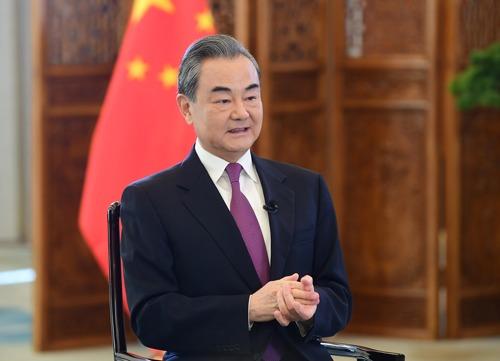On February 20, 2025, Chinese Foreign Minister Mr. Wang Yi delivered a thought-provoking address at the G20 Foreign Ministers’ Meeting in Johannesburg, South Africa. His speech underscored China’s deep commitment to global peace while offering a visionary approach to strengthening multilateral cooperation, enhancing security, and resolving international crises through diplomatic means. With an evolving global landscape, Mr. Wang’s remarks highlighted new opportunities for unity and collaboration, especially amid ongoing geopolitical tensions. His speech emphasized the need for countries to come together, prioritizing dialogue, cooperation, and mutual respect for sovereignty.
At the core of his address, Mr. Wang emphasized China’s role as a steadfast guardian of world peace. In a world that is increasingly interconnected, maintaining peace requires a firm dedication to sovereignty, territorial integrity, and peaceful conflict resolution. Mr. Wang reaffirmed China’s belief that diplomacy should be the primary tool in addressing regional and international conflicts. He spoke of the five principles of peaceful coexistence, which China and other Global South nations introduced more than 70 years ago. These principles continue to guide China’s foreign policy, advocating for mutual respect, non-interference in sovereign affairs, and peaceful coexistence. China remains committed to fostering stability and cooperation on the global stage by promoting dialogue and constructive solutions.
Alongside peace, Mr. Wang highlighted China’s vision for universal security. He argued that security is not just the concern of individual countries but of humanity as a whole. China advocates for a security framework where no nation’s safety comes at the expense of another. This is embodied in China’s Global Security Initiative (GSI), which promotes a security concept rooted in common, comprehensive, cooperative, and sustainable principles. Mr. Wang reiterated that global security should be pursued through cooperation and mutual benefit rather than competition and rivalry. He also emphasized the importance of addressing non-traditional security challenges such as climate change, cyber threats, and pandemics, alongside traditional military concerns. This inclusive approach to security seeks to build partnerships rather than alliances based on confrontation, offering a positive alternative to global tensions.
Mr. Wang’s speech also featured a strong defense of multilateralism, which he called the cornerstone of international relations. In a rapidly changing world, multilateral cooperation is essential to address global challenges, from economic inequality to climate change. He advocated for the reinforcement of international institutions like the United Nations, emphasizing their role in maintaining peace, security, and sustainable development. China’s commitment to multilateralism was further evident in its active support for global governance reform. Mr. Wang stressed the need for global decision-making to be inclusive, fair, and transparent, ensuring that the voices of the Global South are heard in international institutions. This commitment aligns with China’s advocacy for stronger African representation in global governance, which was highlighted during the speech as part of the African Union’s growing role in the G20.
Addressing some of the most pressing regional crises, Mr. Wang spoke on the situations in Ukraine, Gaza, and Syria. He reiterated China’s commitment to peace and dialogue in these conflict zones, emphasizing the need for diplomatic efforts to find peaceful resolutions. Regarding the ongoing war in Ukraine, Mr. Wang affirmed China’s support for initiatives aimed at facilitating peace talks, underscoring the importance of balancing the legitimate concerns of all parties involved. On Gaza, he called for an immediate ceasefire and reaffirmed China’s backing for the two-state solution as the only viable pathway to lasting peace. Similarly, in Syria, Mr. Wang urged respect for the Syrian people’s right to determine their own governance while maintaining international efforts to prevent the spread of extremism.
Mr. Wang concluded his address by acknowledging the significance of Africa’s role in global affairs, especially with the African Union’s full membership in the G20. He described this as an “African moment,” reflecting China’s strong support for the continent’s aspirations and its partnership in addressing African development challenges. China has consistently advocated for African nations to lead their own development efforts and has offered practical support for African-led initiatives. This is evident in China’s ongoing partnership with Africa, particularly its efforts to help the African Union bring peace to the continent.
In a final call to action, Mr. Wang underscored the importance of collective international action. His speech served as a powerful reminder that diplomacy, inclusivity, and mutual respect must guide global cooperation. As the world faces growing challenges, China’s approach offers a hopeful path toward a stable, secure, and prosperous future. Through multilateral engagement and collaboration with nations across the globe, China believes that it is possible to build a lasting peace and create a more just and equitable global order for future generations. By strengthening global governance, promoting common security, and supporting regional peace efforts, China hopes to foster an international environment that encourages cooperation over conflict.
